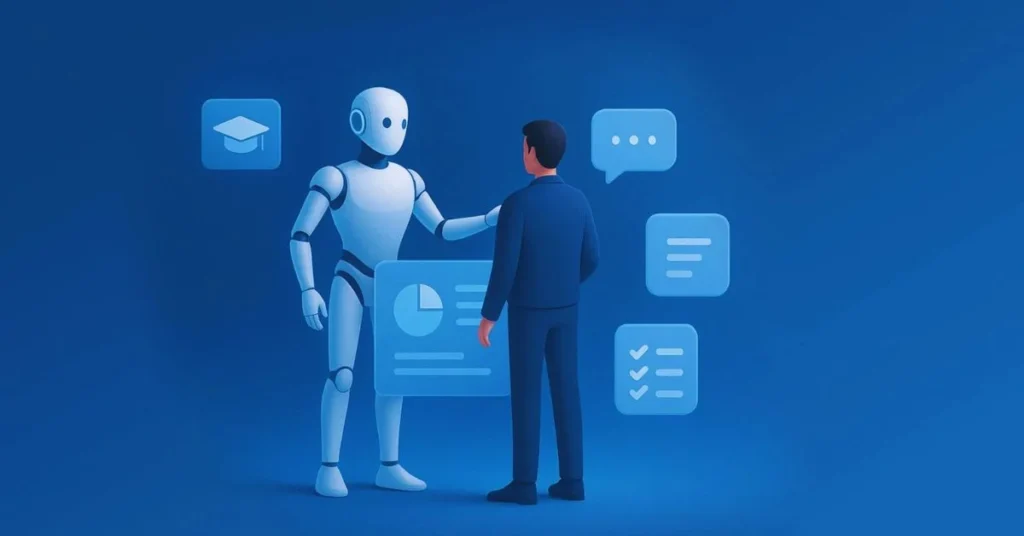Autonomous AI Agents: The Future of Intelligent Automation
Introduction
Autonomous AI marketers are smart structures designed to carry out tasks independently without constant human intervention. Unlike traditional AI fashions that depend heavily on predefined instructions, those sellers can set goals, study from their environment, and make adaptive choices. Their autonomy allows them to feature greater like collaborators instead of mere gear.
Core Characteristics
At the heart of independent AI marketers lies their capability to make independent decisions. They perform in an aim-driven way, constantly analyzing information to obtain unique goals. These sellers also have continuous skills, refining their performance through feedback and comments. Furthermore, they’re designed to interact with human beings naturally, providing factors, taking instructions, and adapting to various verbal exchange patterns.
Underlying Technologies
The effectiveness of self-reliant AI sellers stems from numerous contemporary technologies. Machine learning and reinforcement learning empower them to research the most efficient strategies via trial and error. Natural language processing (NLP) permits them to recognize, generate, and reply to human language. In instances requiring environmental cognizance, pc vision helps popularity and notion. Additionally, multi-agent structures allow multiple retailers to coordinate, negotiate, and collaborate on complex responsibilities.
Also Read: STC Jagnet: Empowering Connectivity and Innovation
Applications of Autonomous AI Agents
- The impact of those sellers spans throughout industries:
- Healthcare: Autonomous retailers assist in prognosis, patient tracking, or even robot-assisted surgeries.
- Finance: They use the electricity automatic trading systems, manage portfolios, and detect fraudulent sports in real-time.
- E-commerce: From intelligent chatbots to personalized shopping experiences, they transform customer engagement.
- Transportation: Self-driving cars and drones rely heavily on autonomous agent frameworks to navigate safely.
- Smart Homes and IoT: They manage energy usage, security systems, and household tasks seamlessly.
Benefits and Opportunities
The adoption of autonomous AI agents offers multiple benefits. Businesses gain efficiency and productivity as agents handle repetitive tasks more quickly than humans. There is a clear cost reduction through automation of routine operations. These agents are also highly scalable, capable of managing large datasets and processes across industries. Perhaps most importantly, they enable innovation, opening the door to new services, business models, and customer experiences.
Challenges and Risks
Despite the promise, several challenges must be addressed. Ethical dilemmas arise when agents inherit biases from training data. Security concerns persist, as autonomous systems remain vulnerable to cyberattacks. The lack of transparency in decision-making—often referred to as the “black box problem”—creates trust issues. Additionally, overreliance on AI could lead to job displacement and over-dependence on automated systems.
Future of Autonomous AI Agents
Looking ahead, autonomous AI agents are likely to become more advanced, moving closer to general AI that can handle a wide variety of tasks. We may see human–AI hybrid teams, where agents complement human skills rather than replace them. Governments and organizations will need to develop regulatory frameworks to ensure safe and ethical deployment. Ultimately, these agents could reshape industries and societies, influencing everything from business strategies to daily lifestyles.
FAQ’s
Q1. What are autonomous AI agents?
Autonomous AI agents are intelligent systems that can make independent decisions, learn from their environment, and perform tasks without continuous human control.
Q2. How are autonomous AI agents different from traditional AI?
Traditional AI follows predefined instructions, while autonomous agents can set goals, adapt, and evolve their strategies based on real-time feedback.
Q3. What technologies power autonomous AI agents?
They rely on machine learning, reinforcement learning, natural language processing (NLP), computer vision, and multi-agent coordination systems.
Q4. Where are autonomous AI agents used today?
They are used in healthcare, finance, e-commerce, self-driving vehicles, drones, and smart home devices.
Q5. What are the benefits of autonomous AI agents?
They increase efficiency, reduce costs, scale across industries, and drive innovation with new business models and services.
Conclusion
Autonomous AI agents represent one of the most transformative innovations of our time. Their ability to operate independently, adapt continuously, and collaborate with humans makes them a cornerstone of the AI-driven future. However, realizing their full potential requires a careful balance between innovation and responsibility. By addressing ethical, security, and governance challenges, we can ensure that autonomous AI agents serve humanity in ways that are both powerful and beneficial.



